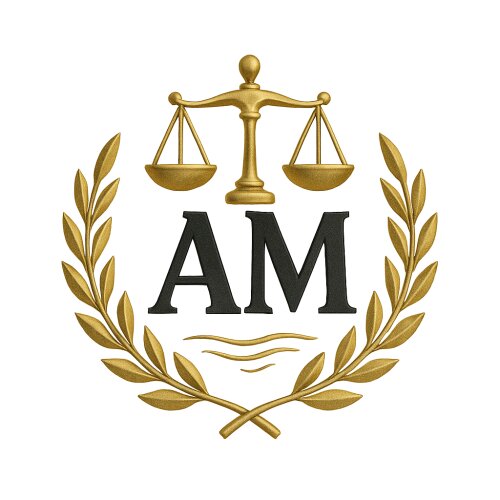Best Restructuring & Insolvency Lawyers in Mława
Share your needs with us, get contacted by law firms.
Free. Takes 2 min.
List of the best lawyers in Mława, Poland
About Restructuring & Insolvency Law in Mława, Poland
Restructuring and insolvency law in Mława operates within the national Polish framework that governs how businesses and individuals in financial distress reorganize, negotiate with creditors or enter bankruptcy. Local cases are handled by the competent courts and involve practitioners who understand national statutes as well as local economic and judicial practice. The main goals of restructuring procedures are to preserve viable businesses, maximize creditor recovery and protect employment where possible. When restructuring is not viable, insolvency and bankruptcy proceedings determine the orderly liquidation or debt discharge.
Why You May Need a Lawyer
Restructuring and insolvency are complex and technical areas of law. You may need a lawyer if you are a business owner whose company is struggling to meet liabilities, a director concerned about personal liability for delayed action, a creditor seeking to protect or enforce claims, an employee worried about unpaid wages, or a consumer considering personal bankruptcy. A lawyer helps evaluate options, prepares restructuring plans, represents you in court, negotiates with creditors and banks, handles formal filings and ensures compliance with procedural deadlines and duties that can have significant financial or criminal consequences if ignored.
Common situations where legal help is essential include negotiating payment plans with banks or suppliers, preparing and filing for restructuring or bankruptcy, defending against enforcement actions, pursuing or defending avoidance actions where transfers prior to insolvency are challenged, advising on management duties and potential liability, and coordinating cross-border creditor claims.
Local Laws Overview
Key legal framework - At the national level Poland’s insolvency and restructuring regime sets out the procedures used throughout Mława and the rest of Poland. Important elements include provisions for restructuring proceedings aimed at rescuing viable businesses and separate provisions for bankruptcy and liquidation where reorganization is not possible. Consumer insolvency rules apply to individuals, while commercial rules apply to companies, sole traders and partnerships.
Types of proceedings - The law provides for several paths including preventive restructuring and negotiated arrangements with creditors, court-supervised restructuring with a court-appointed supervisor, and bankruptcy proceedings leading to liquidation and distribution of assets. Some procedures offer temporary moratoria on enforcement to allow negotiations to proceed.
Role of the court and practitioners - Insolvency and restructuring matters are dealt with by the competent court. Courts appoint professionals such as trustees or liquidators (syndyk), court supervisors (nadzorca sądowy) and administrators, who manage assets or supervise the restructuring plan. Creditors participate through voting rights and committees where legally required.
Priority of claims and secured creditors - The law distinguishes secured and unsecured claims. Secured creditors generally retain strong protection, often enforced through foreclosure on collateral, but restructuring can change payment timing or terms if creditors agree or if statutory conditions are met. Statutory priorities - for example employee claims, certain tax and social security claims - may receive preferential treatment in distribution.
Director and management obligations - Company management and directors have duties to act in the best interest of creditors when insolvency is imminent. Failure to act promptly can lead to liability for worsening losses or to criminal exposure in extreme cases. Early legal advice can reduce these risks.
Frequently Asked Questions
What is the difference between restructuring and bankruptcy?
Restructuring seeks to reorganize a debtor’s obligations so the business can continue operating and creditors receive more than in liquidation. Bankruptcy generally leads to liquidation - selling assets to satisfy creditors - and may result in the end of the business or a debt discharge for individuals. The choice depends on viability, creditor support and legal requirements.
Who decides whether a company in Mława enters restructuring or bankruptcy?
The decision can be proposed by the debtor or initiated by creditors. The competent court evaluates the petition, the debtor’s financial situation and compliance with procedural rules. Courts then open the appropriate procedure and may appoint supervisors or trustees as required by law.
Can a sole proprietor or an individual file for insolvency in Poland?
Yes. Poland has specific rules for consumer insolvency - upadłość konsumencka - and for sole proprietors. Consumer insolvency can lead to discharge of remaining debts after the court procedure, subject to certain conditions. A lawyer can assess eligibility and expected outcomes.
What immediate steps should I take if my company in Mława cannot pay its debts?
Act quickly. Gather accounting records, contracts, lists of creditors and assets. Stop unnecessary payments that could later be challenged as preferential. Seek legal and financial advice to evaluate restructuring options, negotiate with major creditors and consider filing for a protective restructuring or a suspension of enforcement if available.
How long do restructuring or bankruptcy procedures typically take?
Timelines vary widely. Some restructuring plans may be negotiated and approved within months if creditors cooperate. Complex restructurings or contested bankruptcy cases can take a year or more. Liquidation processes depend on asset complexity and creditor claims. A lawyer can give a more accurate estimate based on case specifics.
Will filing for restructuring stop creditor enforcement and debt collection?
Certain restructuring procedures can grant a moratorium or temporary stay on enforcement actions, giving the debtor breathing space to negotiate. The scope and duration of stays vary by procedure and require court approval or compliance with statutory conditions.
What happens to employees if a company undergoes restructuring or bankruptcy?
Employee claims - unpaid wages and certain benefits - often receive priority in insolvency distributions. Restructuring aims to preserve employment where feasible, but redundancies may still occur. In bankruptcy, employees have special claim status and may be eligible for state protections in some cases. Employment law and insolvency law interact closely, so legal advice is important for both employers and employees.
Can secured creditors be affected by restructuring?
Secured creditors generally have strong rights over collateral, but restructuring plans may propose changes to payment timing or other terms if creditors agree or if restructuring rules allow adjustments. Secured creditors often have leverage in negotiations because of their collateral rights.
Are directors or owners personally liable for company debts?
Limited liability companies protect owners’ private assets in normal circumstances. However, directors and managers can face personal liability in cases of illegal activity, breaches of duty, or if they continued trading when insolvency was inevitable and caused losses to creditors. Early legal guidance helps limit these risks.
How much does a restructuring or bankruptcy lawyer in Mława cost?
Costs vary by complexity, lawyer experience and the scope of work. Some matters allow fixed-fee arrangements for specific tasks; others are billed hourly or as a combination of retainer and hourly fees. Expect initial consultations to clarify likely costs and billing arrangements. You can seek estimates from several local lawyers and ask about staged fee structures.
Additional Resources
Local court - the district court or appropriate court division that handles insolvency and commercial matters for Mława will have procedural information and official notices about cases. Contact the court office for filing requirements and local practice notes.
Krajowy Rejestr Sądowy (KRS) - the National Court Register contains company registrations, which can be useful for checking debtor status and company history.
Monitor Sądowy i Gospodarczy - official court gazette where notices concerning insolvency and restructuring are published.
Polish bar associations - regional and national bar bodies can help you find qualified lawyers in Mława and provide information about professional conduct and complaints procedures.
Ministry of Justice - the ministry provides information on insolvency law and procedural rules at the national level and sometimes issues guidance and statistics.
Local business support organizations - chambers of commerce, municipal economic development offices and local accounting firms can provide practical business support during restructuring and point you to reputable legal advisors.
Next Steps
1. Gather documentation - prepare financial statements, bank statements, tax records, payroll data, contracts, leases and a list of creditors with amounts and contact details. Accurate documents are essential for any successful restructuring or bankruptcy filing.
2. Seek early legal advice - consult a lawyer experienced in insolvency and restructuring to evaluate options, schedule a prompt meeting and discuss likely costs and strategies. Early intervention often preserves value and reduces liability risk.
3. Consider informal negotiation - where possible, open talks with major creditors, suppliers and your bank to explore temporary arrangements while you evaluate formal procedures. A lawyer or restructuring adviser can assist with negotiations.
4. Assess procedures - with your adviser, choose the most appropriate route - preventive restructuring, negotiated composition, or bankruptcy - and prepare required documents if formal filing is necessary.
5. Protect evidence and avoid risky transactions - do not dispose of assets, make preferential payments to certain creditors or engage in transactions that could be reversed by a trustee. Your lawyer will advise on permitted actions.
6. Engage local professional support - in Mława you can work with local lawyers, accountants and advisors who know local court practice and business conditions. Ask for references and experience in similar cases.
If you are in immediate difficulty, do not delay. Financial distress can worsen quickly and the difference between a successful restructuring and costly bankruptcy often hinges on prompt, informed action. Seek a consultation with a qualified legal adviser as your next concrete step.
Lawzana helps you find the best lawyers and law firms in Mława through a curated and pre-screened list of qualified legal professionals. Our platform offers rankings and detailed profiles of attorneys and law firms, allowing you to compare based on practice areas, including Restructuring & Insolvency, experience, and client feedback.
Each profile includes a description of the firm's areas of practice, client reviews, team members and partners, year of establishment, spoken languages, office locations, contact information, social media presence, and any published articles or resources. Most firms on our platform speak English and are experienced in both local and international legal matters.
Get a quote from top-rated law firms in Mława, Poland — quickly, securely, and without unnecessary hassle.
Disclaimer:
The information provided on this page is for general informational purposes only and does not constitute legal advice. While we strive to ensure the accuracy and relevance of the content, legal information may change over time, and interpretations of the law can vary. You should always consult with a qualified legal professional for advice specific to your situation.
We disclaim all liability for actions taken or not taken based on the content of this page. If you believe any information is incorrect or outdated, please contact us, and we will review and update it where appropriate.











